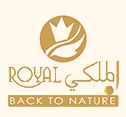
Sidr honey, renowned for its unique flavor and impressive health benefits, stands as a prized commodity in the honey world. This exceptional honey is derived from the nectar of the Sidr tree (Ziziphus spina-christi), a species indigenous to the Middle East and parts of Africa. In the UAE, where Sidr honey is considered the best honey available, the practice of beekeeping plays a pivotal role in maintaining its production. This blog explores how beekeeping practices contribute to the preservation of Sidr Honey production and highlights the efforts of premium brands like Al Malaky Royal in this regard.
Understanding Sidr Honey
Sidr honey is celebrated not just for its rich taste but also for its medicinal properties. It is often referred to as royal honey due to its high quality and the regal status it holds in traditional and modern medicine. The honey is known for its high levels of antioxidants, vitamins, and minerals, which contribute to its therapeutic benefits, including immune system support and wound healing.
The Sidr tree, which produces the nectar for this honey, thrives in arid and semi-arid climates. Its blossoms offer a distinct flavor profile, characterized by a rich, earthy sweetness with hints of caramel and a slight tanginess. The honey is dark amber in color, and its complex flavor makes it highly sought after.
The Role of Beekeeping in Sidr Honey Production
Beekeeping, or apiculture, is crucial for the production of Sidr honey. Here’s how it supports and sustains the industry:
- Pollination of Sidr Trees
The Sidr tree requires pollination to produce nectar, and bees are the primary pollinators. By transferring pollen from one flower to another, bees facilitate the fertilization process, which leads to the production of nectar. This is essential for honey production, as the nectar collected by bees from Sidr flowers is what eventually becomes Sidr honey. - Sustainable Beekeeping Practices
To preserve Sidr honey production, sustainable beekeeping practices are critical. These practices include managing hive health, ensuring adequate forage for bees, and avoiding the use of harmful pesticides. Sustainable beekeeping not only supports the health of bee colonies but also ensures that Sidr trees continue to be pollinated effectively, maintaining the production of high-quality honey. - Monitoring Hive Health
Regular monitoring of hive health is vital to prevent diseases and pests that could devastate bee colonies. Beekeepers use various methods to check for signs of illness or infestation and take action to protect the bees. Healthy bee colonies are more productive and better able to produce the nectar that becomes Sidr honey. - Education and Training
Educating and training beekeepers in best practices for Sidr honey production helps maintain the quality and quantity of honey. This includes knowledge about the specific needs of Sidr trees, the lifecycle of bees, and effective management techniques. Organizations and brands that focus on Sidr honey often provide resources and support to local beekeepers, enhancing their skills and practices.
The Impact of Al Malaky Royal
Brands like Al Malaky Royal play a significant role in preserving Sidr honey production. As a prominent name in the UAE honey industry, Al Malaky Royal is dedicated to ensuring the highest standards of quality for Sidr honey. Their commitment extends beyond merely selling honey; it involves actively supporting beekeepers and promoting sustainable practices.
Al Malaky Royal works closely with local beekeepers to provide them with the resources and knowledge needed to produce top-quality Sidr honey. This support includes offering guidance on hive management, pest control, and sustainable harvesting practices. By partnering with beekeepers and investing in their success, Al Malaky Royal helps maintain the high standards of Sidr honey that their customers have come to expect.
Additionally, Al Malaky Royal's focus on quality ensures that only the best honey in the UAE reaches consumers. Their rigorous testing and quality control processes guarantee that their Sidr honey maintains its exceptional flavor and health benefits.
The Future of Sidr Honey Production
The future of Sidr honey production hinges on the continued efforts of beekeepers, brands like Al Malaky Royal, and the broader community. Preserving Sidr honey production involves addressing challenges such as climate change, habitat loss, and the health of bee populations. By supporting sustainable practices and investing in beekeeping education, stakeholders can ensure that this precious honey remains available for generations to come.In conclusion, beekeeping is integral to the preservation of Sidr honey production. Through effective pollination, sustainable practices, and dedicated support from brands like Al Malaky Royal, the production of Sidr honey continues to thrive. As consumers, we play a role in this process by choosing high-quality honey and supporting those who work tirelessly to produce it. By valuing and protecting Sidr honey, we contribute to the preservation of a tradition that has been cherished for centuries.
